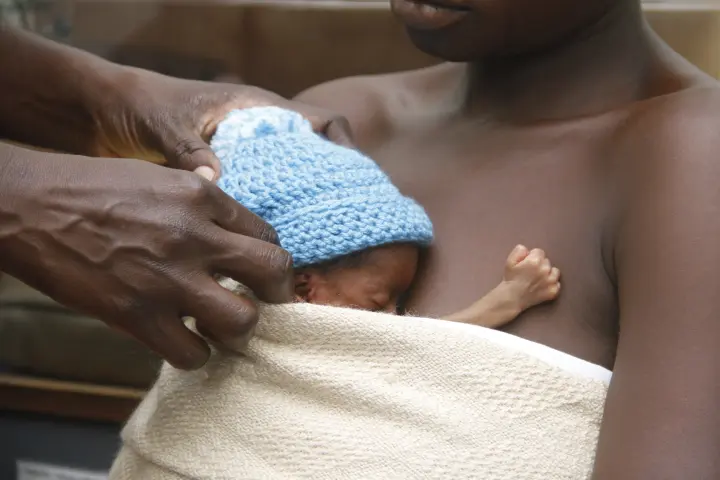
Principal Investigator: Augustine Joachim
Project leader/ Coordinator: Augustine Joachim
Project Administrator: Rukiyah Mohammed
Funding Partner: SolidarMed – a Swiss Organization for Health in Africa
Start date: July 1, 2022
End date: Dec. 31, 2024

A Good Start: Increasing newborn survival combined with implementation research to identify the most cost-effective service package for scale-up
This study which will be simply known as “A Good Start” aims to identify the most cost-effective service package for scaling-up essential newborn care in Tanzania.
In Tanzania, the National Road Map to improve maternal, newborn, child and adolescent health (One Plan III, 2021-2026) has prioritized newborn health and has included high-impact interventions for newborn health.
Supply and demand side interventions are being implemented by the government and partners including Essential newborn care (ENC), Kangaroo Mother Care (KMC), yet, according to a survey of 2018, KMC was only implemented in 25% of facilities and the Essential Newborn Care package in just 12% of health facilities. One of the reasons for these poor outcomes is the lack of necessary medical equipment and infrastructure at rural health facilities.
Other interventions being implemented include:
- Integrated Management of Newborn and Childhood Illnesses (IMNCI)
- Infection Prevention and Control (IPC)
- Helping Babies Breathe (HBB)
- Basic and Comprehensive Emergency Obstetric and Newborn Care (C/BEmONC)
- Integrated Reproductive, Maternal, Newborn, Child and Adolescent Health (RMNCAH)
The primary objective of this study is to identify the most cost-effective service package for scale-up in Tanzania. Other objectives include:
- To investigate short-term maintenance of the impact of the interventions by follow-up of the newborn’s health at the facility and at the household within 28 days of life.
- o characterize the effect of each intervention package (IPC, HBB, KMC & NICE) for each healthcare facility to inform cost-effectiveness analysis.
- To identify and quantify financial and economic costs associated with the implementation of each intervention package (IPC, HBB, KMC & NICE) for each healthcare facility.
The study will target caregivers and their newborns in 3 health facilities namely; Mahenge District Hospital (Ulanga District Council), Kibaoni Health Center (Ifakara Town Council) and Morogoro Regional Referral Hospital (Morogoro Municipal Council).
The study duration is 2 years (July 2022-December 2024) with the implementation and data collection process divided in three phases.
This is a collaborative project involving five partners:
1. Ifakara Health Institute
2. SolidarMed – Tanzania
3. Mahenge District Hospital (Ulanga District Council)
4. Kibaoni Health Centre (Ifakara Town Council)
5. Morogoro Regional Referral Hospital (Morogoro Municipal Council)
This project is funded by SolidarMed – a Swiss Organization for Health in Africa.
